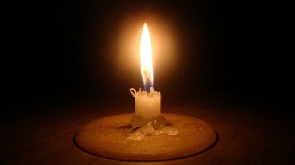The minister o Finance, Mr Ken Ofori-Atta has stated that ‘Dumsor’ is now history in Ghana, assuring the public that government is determined to ensure that it remains that way.
Despite the above assurance, he said the country was facing serious challenges in the energy sector that pose grave financial risks to the whole economy.
“At the heart of these challenges are the obnoxious take-or-pay contracts signed by the NDC, which obligate us to pay for capacity we do not need. We must urgently address these challenges to protect the hard-earned economic gains we have made in the past two-and-a-half years and continue with our economic growth and jobs agenda to improve the lives of Ghanaians,” he said while presenting the 2019 mid-year budget review.
He also said that “This Supplementary Budget, therefore, proposes a number of bold measures to confront the issues to ensure that the energy sector delivers the services required by Ghanaians, while maintaining financial viability.”
Mr Ofori-Atta also explained that the two main challenges confronting the sector are excess electricity generation which was procured during the NDC regime from Independent Power Producers (IPPs), including Emergency Power Producers, at exorbitant prices under flawed take-or-pay contracts.
He said that currently, according to the Energy Commission, the country has installed power generation capacity of 5,083 MW, the dependable capacity of 4,593 MW and peak demand of around 2,700 MW.
“So, our installed capacity is almost double our peak demand. Notably, 2,300 MW of the installed capacity has been contracted on a take-or-pay basis,” he said.
On average, Mr Ofori-Attasaid less than 40 percent of the contracted take-or-pay capacity is actually used, meaning that Ghana is basically throwing away money by paying for the remaining 60 percent of excess capacity which we do not actually consume.
“In monetary terms, what this means is that we are paying over half a billion U.S. dollars or over GH¢2.5 billion annually for power generation capacity that we do not need,” he added.
General News of Monday, 29 July 2019
Source: atinkaonline.com
Dumsor is history - Finance Minister
Entertainment












